Margaret Truman’s Murder at the CDC by Jon Land
Guest Post + Excerpt + Book & Author Info + PICT Giveaway!
Read about Margaret Truman’s Murder on the Metro by Jon Land
Margaret Truman’s Murder at the CDC by Jon Land
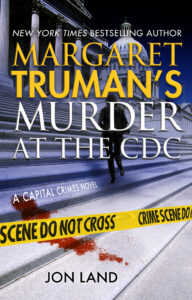 2017: A military transport on a secret run to dispose of its deadly contents vanishes without a trace.
2017: A military transport on a secret run to dispose of its deadly contents vanishes without a trace.
The present: A mass shooting on the steps of the Capitol nearly claims the life of Robert Brixton’s grandson.
No stranger to high-stakes investigations, Brixton embarks on a trail to uncover the motive behind the shooting. On the way he finds himself probing the attempted murder of the daughter his best friend, who works at the Washington offices of the CDC. The connection between the mass shooting and Alexandra’s poisoning lies in that long-lost military transport that has been recovered by forces determined to change America forever.
Those forces are led by radical separatist leader Deacon Frank Wilhyte, whose goal is nothing short of bringing on a second Civil War. Brixton joins forces with Kelly Lofton, a former Baltimore homicide detective. She has her own reasons for wanting to find the truth behind the shooting on the Capitol steps, and is the only person with the direct knowledge Brixton needs. But chasing the truth places them in the cross-hairs of both Wilhyte’s legions and his Washington enablers.
“A wonderful mystery novel, riveting until the last page.”
–Strand Magazine
“A terrific tale that never lets up.”
–Sandra Brown
To purchase Murder at the CDC, click on any of the following links: Amazon | Barnes & Noble | Goodreads
Genre: Political Thriller
Published by: Forge
Publication Date: February 15, 2022
Number of Pages: 304
ISBN: 978-1250238894
Series: Margaret Truman’s Capital Crimes, #32 | Each is a stand alone work.
Guest Post for Margaret Truman’s Murder at the CDC
LIFE IMITATING ART IN MURDER AT THE CDC by Jon Land
In the wake of 9/11, the newly formed Department of Homeland Security gave some select thriller writers a mission: conceive the next big attack on the country. We’ll never know how prescient the project, called “Red Cell,” actually turned out to be. We do know, though, that while thriller writers may not be able to predict the future, our work is based on anticipating it.
I began writing MURDER AT THE CDC in early August of 2020, motivated in large part by what we all witnessed happening to the country during the Trump years. A divisiveness that hadn’t been seen since the Civil War had pit Americans against each other, separated into two warring camps. The hatred and vitriol were genuine, while our so-called president cheered from the sidelines.
For us thriller writers, the greatest two words in the English language are What if? That question has been the basis of too many great books to list and a number of them, like Tom Clancy’s Debt of Honor, are incredibly prescient in their subject matter. So in writing MURDER AT THE CDC, I asked myself what if the notion of a second civil war was more than just a notion? What if someone was out there who could unite all the militias and crazies out there? And what if he was in possession of the kind of weapon that could tip the scales of power permanently in the wrong direction?
I finished the book right around Election Day, having no idea that the next few months were going to reveal evidence of a bona fide attempted insurrection and coup. Suddenly, what I’d written no longer seemed like fiction. Toward that end, a recent poll found that thirty-four percent of Americans, thirty-four percent, believe it would be okay to use force to bring down the government. They’re effectively anti-democracy and pro-autocracy, the kind of people who would vote for Hungary’s Victor Orban if he ran for president in 2024. I didn’t invent that reality, but it’s emblematic of how far these people will go to get what they want, and that makes the events that transpire MURDER AT THE CDC all the more relevant.
In this case, that all starts with our former president. I’ve written an awful lot of books with villains ranging from megalomaniacs to psychopaths, but Donald Trump is more unimaginably evil and irredeemable than virtually any of them. I spent four years on the edge, listening to his rantings and seeing right through him. Even though Trump doesn’t appear anywhere in its pages, MURDER AT THE CDC centers around the mentality and sensibility that allowed him to be. And the book focuses on the ultimate extreme that mentality can lead to, the scariest thing being I genuinely believe a frighteningly large portion of this country, and politicians, would accept murdering millions of Americans if it meant them taking power for good.
If you look at my social media posts, I really strive to avoid mentioning anything to do with politics, and strive to keep politics out of my books as well. People read thrillers to be entertained, not lectured to. And in a perfect world, readers wouldn’t be able to tell on which side of the political spectrum I fall, because it shouldn’t matter. I’m only spilling my guts now to illustrate the origins of this book and how it might well become this generation’s Debt of Honor, which climaxes with a catastrophic terrorist attack that presaged 9/11. Only, as foretold in MURDER AT THE CDC, that attack would be coming from the inside instead of the out.
Because I wrote the book before January 6, there’s no ripping off that day or the principals behind it. As always, I let my characters drive the story, not my politics. When I’m hammering away at the keyboard, I have a story to tell, not an axe to grind. So the villain of MURDER AT THE CDC, Deacon Frank Wilhyte, isn’t defined by his politics either. He’s defined by having a famous father he couldn’t please and who was physically abusive. Now he’s got his own son and finds himself effectively becoming the same man his father was.
That’s powerful stuff and forms a big part of the book, culminating in the fact that the boy is a science savant capable of weaponizing the deadly toxin Deacon Frank has come into possession of when the experts he hired failed. His son proves himself to Deacon Frank in a way Deacon Frank could never prove himself to his father. The same holds true for the book’s hero, Robert Brixton. While I’ve made him the classic ex-special operator, he’s defined more by being a father and a grandfather, than by how many bodies he leaves behind in the course of the book.
When asked what’s the most important thing a writer can do, I used to say Tell a great story. Now I say Have fun telling a great story. And I had a blast writing MURDER AT THE CDC in large part because characters like Brixton and Deacon Frank did the heavy lifting. I followed their lead in taking the book where it needed to go, which just happened to be a place I had never gone before.
I truly, sincerely, hope I turn out to be a lousy prophet. I truly hope the events portrayed in MURDER AT THE CDC remain nothing more than fiction and that we never face anything approaching a second civil war. When I start a book, though, I never know how it’s going to end. And, similarly, I have no idea how this sordid chapter of our history is going to end because, sometimes, life really does imitate art.
Excerpt Margaret Truman’s Murder at the CDC by Jon Land
PROLOGUE
December, 2016
The tanker lumbered through the night, headlights cutting a thin swath out of the storm raging around it.
“I can’t raise them, sir,” said Corporal Larry Kleinhurst, walkie-talkie still pressed tight against his ear.
“Try again,” Captain Frank Hall said from the wheel.
“Red Dog Two, this is Red Dog One, do you read me? Repeat, do you read me?”
No voice greeted him in response.
Kleinhurst pressed the walkie-talkie tighter. “Red Dog Three, this is Red Dog One, do you read me? Repeat, do you read me?”
Nothing again.
Kleinhurst lowered the walkie-talkie, as if to inspect it. “What’s the range on these things?”
“Couple miles, maybe a little less in this slop.”
“How’d we lose both our lead and follow teams?”
Hall remained silent in the driver’s seat, squeezing the steering wheel tighter. Procedure dictated that they rotate the driving duties in two-hour shifts, this one being the last before they reached their destination.
“We must be off the route, must have followed the wrong turn-off,” Kleinhurst said, squinting into the black void around them.
Hall snapped a look the corporal’s way. “Or the security teams did,” he said defensively.
“Both of them?” And when Hall failed to respond, he continued, “Unless somebody took them out.”
“Give it a rest, Corporal.”
“We could be headed straight for an ambush.”
“Or I fucked up and took the wrong turn-off. That’s what you’re saying.”
“I’m saying we could be lost, sir,” Kleinhurst told him, leaving it there.
He strained to see through the big truck’s windshield. They had left the Tooele Army Depot in Tooele County, Utah right on schedule at four o’clock pm for the twelve-hour journey to Umatilla, Oregon which housed the Umatilla Chemical Depot, destination of whatever they were hauling in the tanker. The actual final resting place of those contents, Kleinhurst knew, was actually the Umatilla Chemical Agent Disposal Facility located on the depot’s grounds, about which rumors ran rampant. He’d never spoken to anyone who’d actually seen its inner workings, but the tales of what had already been disposed of there was enough to make his skin crawl, weapons that could wipe out the world’s population several times over.
Which told Kleinhurst all he needed to know about whatever it was they were hauling, now without any security escort.
“We’re following the map, Corporal,” Hall said from behind the wheel, as if needing to explain himself further, a nervous edge creeping into his voice.
He kept playing with the lights in search of a beam level that could better reveal what lay ahead. But the storm gave little back, continuing to intensify the further they drew into the night. Mapping out a route the old-fashioned way might have been primitive by today’s standards, but procedure dictated they avoid the likes of Waze and Google Maps out of fear anything web-based could be hacked to the point where they might be rerouted to where potential hijackers were lying in wait.
Another thump atop the ragged, unpaved road shook Hall and Kleinhurst in their seats. They had barely settled back down when a heftier jolt jarred the rig mightily to the left. Hall managed to right it with a hard twist of the wheel that squeezed the blood from his hands.
“Captain . . .”
“This is the route they gave us, Corporal.”
Kleinhurst laid the map between them. “Not if I’m reading this right. With all due respect, sir, I believe we should turn back.”
Hall cast him a condescending stare. “This your first Red Dog run, son?”
“Yes, sir, it is.”
“When you’re hauling a shipment like what we got, you don’t turn back, no matter what. When they call us, it’s because they never want to see whatever we’re carrying again.”
With good reason, Kleinhurst thought. Among the initial chemicals stored at Umatilla, and the first to be destroyed at the chemical agent disposal facility housed there, were containers of GB and VX nerve agents, along with HD blister agent. The Tooele Army Depot, where their drive had originated, meanwhile, served as a storage site for war reserve and training munitions, supposedly devoted to conventional ordnance. In point of fact, the military also stored nonconventional munitions there in secret, a kind of way station for chemical weapons deemed too dangerous to store anywhere else.
The normal route from Tooele to Umatilla would have taken just over ten hours via I-84 west. But a Red Dog run required a different route entirely off the main roads in order to avoid population centers. The point was to steer clear of anywhere people resided to avoid the kind of attention an accident or spill would have otherwise caused, necessitating a much more winding route Hall and Kleinhurst hadn’t been given until moments prior to their departure. A helicopter had accompanied them through the first stages of the drive, chased away when a mountain storm the forecasts had made no mention of whipped up out of nowhere and caught the convoy in its grasp. Now two-thirds of that convoy had dropped off the map, leaving the tanker alone, unsecured, and exposed, deadly contents and all.
Kleinhurst’s mouth was so dry, he could barely swallow. “What exactly are we carrying, sir?”
Hall smirked. “If I knew the answer to that, I wouldn’t be driving this rig.”
Kleinhurst’s eyes darted to the radio. “What about calling in?”
“We’re past the point of no return. That means radio silence, soldier. They don’t hear a peep from us until we get where we’re going.”
Kleinhurst watched the rig’s wipers slap at the pelting rain collecting on the windshield, only to have a fresh layer form the instant they had completed their sweep. “Even in an emergency? Even if we lost our escorts miles back in this slop?”
“Let me give it to you straight,” Hall snapped, a sharper edge entering his voice. “The stuff we’re hauling in this tanker doesn’t exist. That means we don’t exist. That means we talk to nobody. Got it?”
“Yes, sir,” Kleinhurst sighed.
“Good,” said Hall. “We get where we’re supposed to go and figure things out from there. But right now . . .” His voice drifted, as he stole a glance at the map.
Suddenly Kleinhurst lurched forward, straining the bonds of his shoulder harness to peer through the windshield. “Jesus Christ, up there straight ahead!”
“What?”
“Look!”
“At what?”
“Can’t you see it?”
“I can’t see shit through this muck, Corporal.”
“Slow down.”
Hall stubbornly held to his speed.
“Slow down, for God’s sake. Can’t you see it?”
“I can’t see a thing!”
“That’s it, like the world before us is gone. You need to stop!”
Hall hit the brakes and the rig’s tires locked up, sending the tanker into a vicious skid across the road. He tried to work the steering wheel, but it fought him every inch of the way, turning the skid into a spin through an empty wave of darkness.
“There!” Kleinhurst screamed.
“What in God’s name,” Hall rasped, still fighting to steer when a mouth opened out of the storm like a vast maw.
He desperately worked the brake and the clutch, trying to regain control. He’d been out in hurricanes, tornados, even earthquakes. None of those, though, compared to the sense of airlessness both he and Kleinhurst felt around them, almost as if they were floating over a massive vacuum that was sucking them downward. He’d done his share of parachute jumps for his airborne training and the sensation was eerily akin to those first few moments in freefall before the chute deployed. He remembered the sense of not so much being unable to breathe, as being trapped between breaths for an absurdly long moment.
The rig’s nose pitched downward, everything in the cab sent rattling. The dashboard lights flickered and died, the world beyond lost to darkness as the tanker dropped into oblivion.
And then there was nothing.
CHAPTER 1
“The hand of God is upon You! He is my shepherd and I shall not want!”
Those were the last words high school sophomore Ben McDonald heard before the shooting started. He and the other students clustered around him from the Gilman School in Maryland were on a school field trip to the Capitol Building from their Baltimore prep school, the first such trip taken since academic life returned to a degree of normalcy following the endless coronavirus nightmare. Everyone had shown up in their school uniforms, the buses had left on schedule, and the students felt like pioneers, explorers blazing a trail back into the world beyond shutdowns and social distancing.
The reduction in Capitol tour group size was still in force and had necessitated the two bus-loads of students to be divided into five groups of fifteen, give or take, three chaperones allotted to each. Ben and his twin brother Robbie’s group had gone first and they had found themselves lingering on the Capitol steps, taking pictures and chatting away with their local congressman and senator who’d come out to greet and mingle with the students on the steps at the building’s east front.
“Why are you still wearing a mask?” one of them had asked the congressman, but Ben had already forgotten the answer.
He remembered checking the time on his phone just before he heard the first shots. Ben thought they were firecrackers at first, realizing the truth a breath later when the screams began and bodies started flying.
“I am doing the Lord’s work! I am a sacrifice to his word!”
Somehow Ben gleaned those words through the screams and incessant hail of fire. The shots were coming so fast he wasn’t sure if the shooter was firing on semi or full auto. The boy never actually saw him as more than a shape amid the blur before him, enveloping his vision like a dull haze. The thin sheer curtain drawn over his eyes didn’t keep him from recording bodies crumpling, keeling over, tumbling down the steps. The force of a bullet’s momentum slammed a classmate into him, sparing Ben the ensuing fusillade that turned the other boy’s back into a pin cushion.
My brother!
The panic and shock of those initial seconds had stolen thought of Robbie from him. He wheeled about, covered in the blood of boy who had dropped off the scene.
“Robbie!”
Did he cry out his name or only think it? The steps around him looked blanketed in khaki and blue, pants and blazers that made up his Gilman uniform. The sound of gunfire continued to resound in his ears, but he wasn’t sure the shooter was still firing because no more bodies seemed to be falling. People were running in all directions, crying and screaming, Ben remaining frozen out of fear for his brother.
“Robbie!”
He saw his brother’s sandy blond hair draped down from one of the marble steps onto another. Nothing else at first, just the hair. Maybe he had dove atop a friend who’d been wounded to spare that kid more fire—that was Robbie. But there was no one beneath Him, and . . . And . . .
He wasn’t moving, his arms stretched to the sides on angles that looked all wrong. Ben dropped to his knees next to Robbie, his pants sinking into pooling patches of blood which merged and thickened beneath him. He felt something pinching him along right side of his ribcage and saw his blue shirt darkening with a spreading wave of red in the last moment before he collapsed next to his brother.
Jon Land
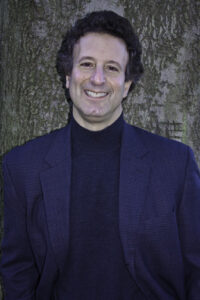 JON LAND is the USA Today bestselling author of fifty-eight books, including eleven in the critically acclaimed Texas Ranger Caitlin Strong series, the most recent of which, Strong from the Heart, won the 2020 American Fiction Award for Best Thriller and the 2020 American Book Fest Award for Best Mystery/Suspense Novel. Additionally, he has teamed up with Heather Graham for a science fiction series that began with THE RISING (winner of the 2017 International Book Award for best Sci-fi Novel) and continues with BLOOD MOON, to be published in November of 2022.
JON LAND is the USA Today bestselling author of fifty-eight books, including eleven in the critically acclaimed Texas Ranger Caitlin Strong series, the most recent of which, Strong from the Heart, won the 2020 American Fiction Award for Best Thriller and the 2020 American Book Fest Award for Best Mystery/Suspense Novel. Additionally, he has teamed up with Heather Graham for a science fiction series that began with THE RISING (winner of the 2017 International Book Award for best Sci-fi Novel) and continues with BLOOD MOON, to be published in November of 2022.
He has also written six books in the Murder, She Wrote series of mysteries and has more recently taken over Margaret Truman’s Capital Crimes series, with his second effort, MURDER AT THE CDC, to be published in February of 2022.
Jon is known as well for writing the film DIRTY DEEDS, a teen comedy starring Milo Ventimiglia and Zoe Saldana, which was released in 2005. A graduate of Brown University, he received the 2019 Rhode Island Authors Legacy Award for his lifetime of literary achievements.
To learn more about Jon, click on any of the following links: JonLandBooks.com, Goodreads, BookBub – @JonLand2, Twitter – @JonDLand & Facebook – @JonLandAuthor
Partners In Crime Giveaway!
Visit all the Stops on the Book Tour!
02/14 Guest post @ Mythical Books
02/15 Interview @ Blog Talk Radio
02/15 Review @ Just Reviews
02/16 Guest post @ The Book Divas Reads
02/16 Review @ Mystery Review Crew
02/17 Review @ Avonna Loves Genres
02/18 Interview @ Quiet Fury Books
02/21 Review @ rozierreadsandwine
02/22 Review @ fundinmental
02/23 Guest post @ Mystery Review Crew
02/25 Review @ Novels Alive
02/25 Showcase @ The Bookwyrm
02/27 Review @ Buried Under Books
02/28 Review @ Book Reviews From an Avid Reader
03/01 Review @ sunny island breezes
03/02 Guest post @ Author Elena Taylors Blog
03/04 Showcase @ Silvers Reviews
03/08 Review @ Celticladys Reviews
03/08 Showcase @ Archaeolibrarian – I Dig Good Books!
03/09 Interview @ A Blue Million Books
03/10 Review @ flightnurse70_book_reviews
03/11 Showcase @ Pick A Good Book
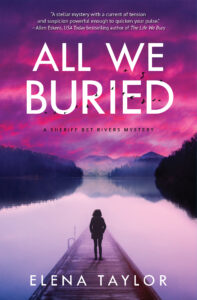 Elena Taylor is the author of All We Buried, available now in print, e-book, and audio book format at all your favorite bookstores and on-line retailers.
Elena Taylor is the author of All We Buried, available now in print, e-book, and audio book format at all your favorite bookstores and on-line retailers.
For more information on All We Buried, click on the link here to visit the home page.
Silver Falchion Award Finalist, Best Investigator 2020
Foreword INDIE Award Finalist, Best Mystery 2020

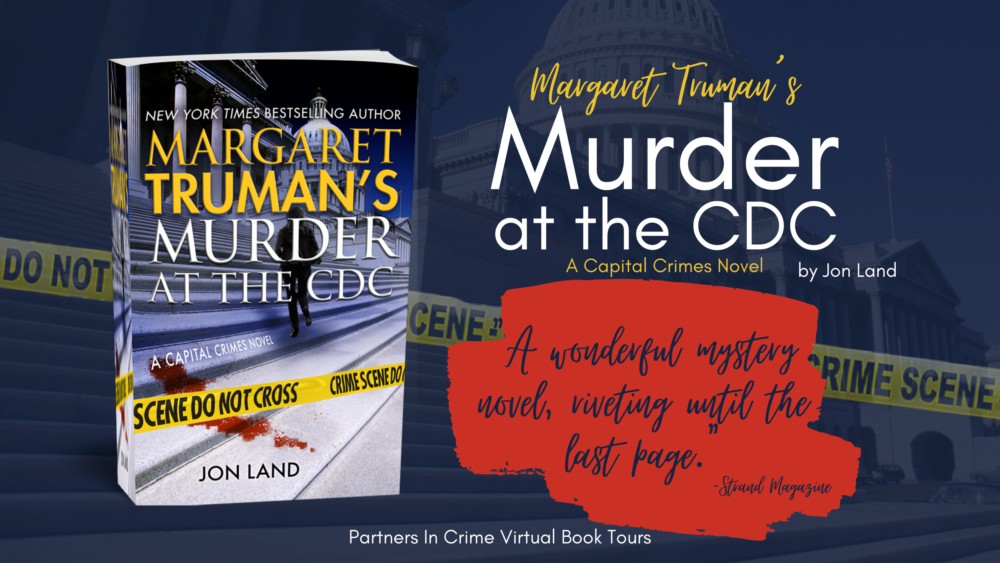
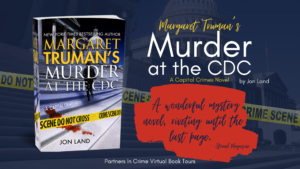
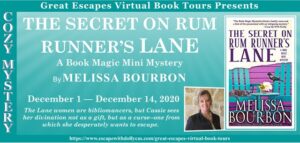
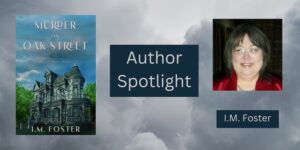

Well as if I didn’t already want to read this… your guest post just pushed me over the edge!
Very edgy and gutsy – I like that!